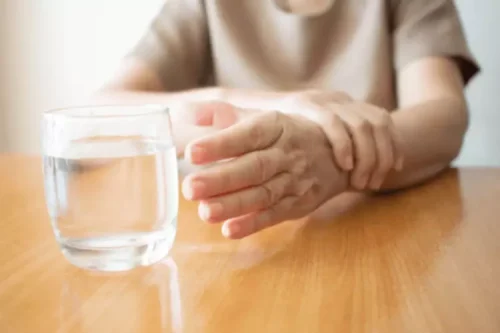
Spirituality is an individual, personal journey focused on self-discovery and the search for a greater sense of purpose. It emphasizes personal beliefs and practices, allowing individuals to explore what resonates with them on a deeper level. This can be especially significant for those who have faced negative experiences with organized religion. This awakening can lead to deep emotional releases, which foster feelings of peace, connection, and purpose. It encourages a shift from substance reliance to embracing healthy practices and positive lifestyle changes. For many, a spiritual awakening is a pivotal event, marking a shift towards resilience and the establishment of a meaningful path in recovery.
Meditation For Addiction Cravings Script
You’ll still need to undergo professional treatment and support for long-term sobriety. You know yourself best, so if you need more than just mindfulness and meditation, feel free to explore other options. If you or a loved one are recovering from addiction, you already know that intense emotions and cravings can be difficult to manage. Fortunately, various tools and skills can aid you in your recovery journey.
Mental Benefits
Support groups and meetings can be found 24 hours a day from the comfort of your home with a variety of recovery programs to choose from. Relapse is when someone resumes drinking in unhealthy ways after a period of recovery. Do not drink alcohol or take sedatives while taking St. John’s wort. Check with your healthcare provider or pharmacist before taking St. John’s wort. St. John’s wort can help to relieve depression and mood swings that come with alcohol withdrawal and early recovery.
Solitude doesn’t entail loneliness, despite first-year mentality
In mindfulness meditation, the person works to build his or her awareness of the current situation. In guided meditation, you will work with a trained meditation or mental health professional. MET integrates aspects of motivational interviewing and is based on the transtheoretical model of change. For people who are ambivalent about giving up their addiction or who are not motivated to recover, MET can be a helpful way to inspire change. The MET approach addiction meditation kundalini can be useful for helping people understand the effects of their behavior and feel more capable of recovering from addiction. Paul Harrison is a meditation teacher with 20+ years of experience and a deep passion for helping others.

It is usually done while sitting in a comfortable position with eyes closed. As you breathe, concentrate on each breath as you inhale and exhale. If your mind starts to wander from the present, bring it back by refocusing on your breathing.
Mindfulness Meditation
By promoting relaxation and a sense of calm, it aids individuals in navigating emotional turbulence without resorting to substance use. The benefits of meditation are far-reaching, and for those in addiction recovery, meditation is a powerful ally. It teaches you coping strategies to avoid relapse, increases addiction recovery motivation and optimism, and cultivates gratitude and compassion. By integrating meditation into a holistic approach to recovery, individuals can address not only the symptoms but also the underlying causes of addiction, fostering a comprehensive and sustainable path to healing. Although it’s a helpful tool for managing stress through recovery, it’s not a replacement for treatment.
- For this and other reason, many scientists state that Mindfulness-Based Interventions (MBIs) are arguably the very best cure for addictions (Addition Science & Clinical Practice, 2018).
- Moving meditation involves practicing mindfulness while engaging in focused movement.
- The main idea is to use silence as a special tool to talk to the divine.
- Like other forms of addiction, addiction to alcohol causes great harm to those who are dependent and everyone connected to…
- It’s like discovering a quiet sanctuary within yourself where the magic of your spiritual essence unfolds.
What is the spiritual perspective of addiction?
- Adelante Recovery Center is here to help those that are battling drug and alcohol addiction.
- Beyond helping with reducing stress, meditation has also been shown to help boost a person’s mood.
- Being mindful is about being present, increasing our awareness, and opening our eyes to the reality of now.
- Instead, people can incorporate mindful meditation into their daily routine for a few minutes at a time.
- One such strategy could be incorporating practices like meditation into one’s life.
Mindfulness-based relapse prevention therapy (MBRT) is a therapeutic approach that supports Drug rehabilitation addiction recovery. It teaches people in recovery mindfulness techniques to reduce the risk of relapse. People who live with mental health conditions, substance use disorder (SUD), and other conditions may benefit from mindfulness. People with these conditions may incorporate meditation and other mindfulness practices into their recovery. Individuals incorporate meditation into their daily addiction recovery routine by setting aside a consistent time each day to practice various mindfulness, breath-focused, or guided meditation techniques.


Breath awareness meditation has been found to reduce opioid cravings and withdrawal symptoms. For many years, scientists believed that the brain’s plasticity, that is, its ability to create new structures and learn, was limited after childhood. However, new research https://ecosoberhouse.com/ shows that we can alter the structure of the brain and reap the benefits well into adulthood. Changing your mind (or thought processes) actually causes changes in the brain (Lazar et al. 2005). Intention and attention of focus were the keys to reaching these states, not the number of hours spent on a meditation cushion (Lazar and Siegel 2007).
